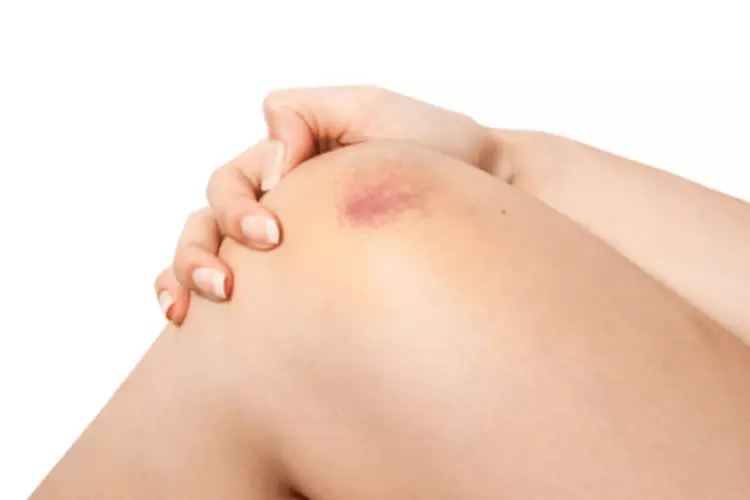Many people with alcohol use disorder hesitate to get treatment because they don’t recognize that they have a problem. An intervention from loved ones can help some people recognize and accept that they need professional help. If you’re concerned about someone who drinks too much, ask a professional experienced in alcohol treatment for advice on how to approach that person. The Nestled can help you take the first step towards a healthier, happier life free from addiction. Reach out to us today to learn more about our personalized treatment programs and compassionate support.
What are the risk factors for high-functioning AUD?
There can also be declines in their mental and overall health, especially if they’re not eating healthy diets or engaging in physical activity. They may also withdraw from social situations and find excuses to miss events or optional commitments where drinking is not available or possible. There may also be new legal issues arising for them, like driving under the influence or making other poor decisions. Being able to carry out regular responsibilities with AUD is not the same as being free of the disease. Alcohol use disorder can still have a significant impact on a person’s life, even if they appear to be coping from the outside. Someone can live with alcohol use disorder without anyone else noticing.
If your loved one needs help
A competent therapist will perform a complete assessment of the situation prior to engaging in any type of family or group therapy. Such an assessment should raise suspicions that the individual antibiotics and alcohol has a significant issue with their use of alcohol, and this should also be treated. Navigating the world of alcoholism is complex, with many variations hidden beneath the surface.
Stage #3: The Consequences Of Problem Drinking Start To Show
Recovery is also about individuals regaining a compass and learning to trust themselves enough to make changes and explore options. While it can take a great deal of courage to pursue adding to a personal patchwork, it is imperative to have appropriate clinical, self-help, loved one, or coaching support when making these shifts. In the past, there were fewer self-help alcohol intolerance symptoms and causes and treatment program options and less access to resources. The landscape has changed post-pandemic, and innovations in the self-help and treatment space, as well as many virtual options, have increased access to care. More recently, there has been a movement towards a fluid and adaptive approach to recovery that resembles a patchwork of non-linear layers and choices.
Many people who attend support group meetings experience therapeutic benefits. Functional alcoholism profoundly affects mental and emotional health, often in ways that are subtle and gradual. Chronically excessive alcohol consumption can lead to the development of mental health disorders such as depression and anxiety, exacerbating stress and emotional instability. The reliance on alcohol for coping or relaxation can diminish an individual’s ability to manage emotions and stress healthfully. If people with high functioning AUD do not get treatment, the disease may progress to a point at which their dependence significantly impacts their day-to-day lives. If you’re ready to seek treatment for alcoholism or would like to know more about your treatment options, American Addiction Centers (AAC) can help.
High-functioning alcoholics can benefit from having an at-home support system before, during and after any form of treatment for their addiction. There are hundreds of resources all over the country designed to address the issue of alcohol abuse and addiction. The first stage of alcoholism is a general experimentation with the substance. Individuals in this stage may not be familiar with how to rebuild a healthy life after addiction different types of alcohol, so they are more likely to test their limits. This stage of alcoholism is often defined by the goal of “drinking to get drunk.” People who use alcohol often use it to self-medicate and escape negative thoughts and feelings. Usually, people in the first stage of alcoholism are not drinking every day, and they are still able to perform daily activities.
It’s important to approach the situation with compassion, understanding, and firm boundaries. While you can offer support and encourage change, remember that their willingness to acknowledge the problem and seek help is key to their recovery journey. People who live fully functional lives can still have AUD and can benefit from treatment and support. The condition causes changes in the brain that decrease the ability to quit on your own. This makes it important to seek medical treatment and peer support in your recovery process.
- They are usually able to manage areas of life including jobs, homes, and families.
- High-functioning alcoholics (HFAs) defy these stereotypes and often go undetected because they do not fit the image of the “typical” alcoholic.
- In addition, since the impact of AUD may not be as obvious, the person may be unable to recognize the severity of their condition in these early stages.
- People who are close to a person with AUD may need support to understand how to help their loved ones.
- Regardless of whether the person can function in some aspects of life, alcoholism is a serious disease.
- Unlike the stereotypical portrayal of alcoholics, functional alcoholics often lead successful, outwardly stable lives, making it challenging for outsiders to recognize the signs.
Instead, the DSM-5 has established AUD as the term to replace previous stigmatizing terms such as alcohol dependence, alcohol abuse, and alcoholism. However, this and other related misnomers such as “functional alcoholic” are no longer used because of the potential stigma that can prevent someone from seeking help. While cirrhosis scars from excessive drinking are irreversible, quitting alcohol and leading a healthier lifestyle can help your liver heal from alcohol-related liver disease. Drinking alone or being secretive about drinking can be another sign of alcohol use disorder. Drinking alcohol at unconventional times—such as early in the day or at gatherings where nobody else is drinking—is another hallmark of this disease. It’s true that moderate drinking can offer substantial health benefits across all age brackets, the most striking of which is a finding by Harvard’s School of Public Health that alcohol can protect against heart disease.
The term “functional alcoholic” is heavily debated in the addiction community, but it’s part of the social vernacular so it’s valuable to discuss the common misconceptions. Just because someone with an alcohol use disorder (the medical term for an alcoholic) is functioning doesn’t mean they’re functioning well or functioning in each aspect of their lives. Keep that idea in mind while you approach the topic of alcohol abuse and addiction. American Addiction Centers offers a range of treatment services in facilities across the country to help treat alcohol use disorders. With our help, patients don’t only appear to function normally, but feel and experience life to its greatest potential as a sober and recovering individual. Certain factors may increase your risk of developing an alcohol problem.
For anyone who’s concerned about a loved one’s drinking, please find a community of support like Al-Anon. Whether your loved one agrees or not, their actions affect you and you deserve outside support. Other alternatives include group or individualized therapy, consulting educational resources and books, or attending online support groups.
Here’s how we can face our triggers with less reactivity so that we can get on with our lives. If they are open and willing, they might enter into an inpatient rehab and begin a new chapter in life. As the condition progresses, cognitive effects such as memory loss, impaired decision-making, and reduced mental clarity become more pronounced. These cognitive impairments can lead to feelings of frustration, decreased self-esteem, and a sense of isolation. In addition, since the impact of AUD may not be as obvious, the person may be unable to recognize the severity of their condition in these early stages. You could have AUD even if you are able to keep a relatively normal life if you fulfill at least two of the DSM-5 criteria for the condition.
Sometimes, people with alcohol use disorder don’t recognize their drinking is an issue, especially if they meet their work and home life responsibilities despite their alcohol dependence. As such, they may justify their drinking as a normal part of life—even though it isn’t. These behaviors are potential signs that a person is unable to control their cravings for alcohol or they’re trying to resolve withdrawal symptoms by drinking, both of which are symptoms of AUD. Your doctor or another medical or mental health professional can provide you with more information and guidance about alcoholism and suggest how to speak to your loved one.



